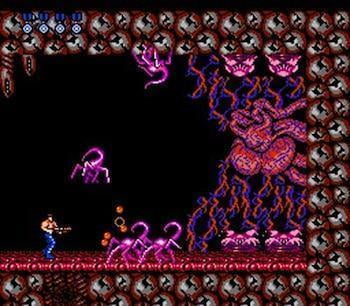The Best Life Lessons Learned from Playing Video Games
A couple of years back, while visiting with family over Thanksgiving, my cousins and siblings and I started playing the card game we call King Peasant (though it’s also called a lot of other things around the world).
The premise is that the game models a political structure (it’s sometimes called President) where the people on top stay on top and the people on bottom stay on bottom because at the beginning of each round, the lowest people have to give their top 1-3 cards (depending on how low in the hierarchy they are) to the top people, ensuring that the top people have better hands.
At this Thanksgiving
I’d been on the bottom for nearly the whole game, so I decided to see if I could model another aspect of politics and start a revolution. I successfully got all the bottom people plus the middle, neutral, person to join my revolution and go on strike until the people at the top agreed to negotiate the rules with us to make the card-stealing mechanic less brutal on the bottom.
 For me, it was hilarious to expand the political model in this way. For my two sisters who were at the top, though, one of whom had just reached the top after slowly clawing her way up from the bottom, this was not funny. They were both legitimately pissed at me, not just during the game, but afterward, and talking about King Peasant with them remains a bad idea to this day.
For me, it was hilarious to expand the political model in this way. For my two sisters who were at the top, though, one of whom had just reached the top after slowly clawing her way up from the bottom, this was not funny. They were both legitimately pissed at me, not just during the game, but afterward, and talking about King Peasant with them remains a bad idea to this day.
What I learned that day
Is to be more careful when weighing amusement within a game against long-term social relationships outside the game (I get along well with my sisters, but still). I also learned that changing the rules of a game is something that the people who suffer from those rule changes unsurprisingly and legitimately consider a BS move. Multiplayer games are social events, and breaking the rules to amuse or benefit yourself has consequences and victims, even if it’s to explore or goof around rather than to cheat.
I should have known better, because on balance
Video games have made me a better-socialized person. Some of my best life lessons about sharing as a kid came while playing multiplayer video games on the NES. Split-screen co-op was rare in those 8-bit days (aside from Spy Vs Spy and Xenophobe), so most multiplayer games were alternating play, same-screen co-op, or same-screen competitive. Each of those multiplayer styles provides a venue for different socialization skills that were good for me as a kid (though I also knew kids who just got more practice at being jerks while playing each type of game).
Competitive video games
Like Rampage, Tecmo Bowl, and WWF Wrestlemania were a good opportunity to learn how to win and lose without being a jerk. If you were a jerk, people wanted to play with you less. I didn’t get an NES until midway through 1988, so if I wanted to play before that, I had a great incentive to be someone who wasn’t annoying to play with.
Co-op games
Like Contra (reviewed by me here) and Super C, Teenage Mutant Ninja Turtles II: The Arcade Game (reviewed here), and the Ikari Warriors series (reviewed here) —particularly the single-screen variety common in the 8-bit era, where one person’s progression could accidentally kill the other player (a situation hilariously updated in the New Super Mario Bros series)—required, well, cooperation. You had to be aware of how what you did affected your partner and the overall strategy, and not always put yourself first.
series (reviewed here) —particularly the single-screen variety common in the 8-bit era, where one person’s progression could accidentally kill the other player (a situation hilariously updated in the New Super Mario Bros series)—required, well, cooperation. You had to be aware of how what you did affected your partner and the overall strategy, and not always put yourself first.
Alternating multiplayer games
Like Super Mario Bros series, Double Dragon (the NES version), Paperboy (whose insane difficulty I’d forgotten until I tried to replay it a couple of years ago), and the very strange Q*Bert, taught patience and sharing since there was a fair amount of waiting and watching the other player(s). Actively rooting for their failure also tended to have negative social consequences (usually).
Now all of these peer socialization lessons are things that kids get outside of multiplayer video games, of course, in activities like team sports, schoolyard playground activities, or playing things other than video games with friends. But unlike team sports or schoolyards, video game sessions tended (for me, anyway) to be relatively unsupervised by adults, so unless peer interactions got really out of hand, there was no adult stepping in to make us play nice—instead of learning what the supervising adult’s consequences for misbehavior were, I learned what the peer consequences for being a jerk were, which is a different and important thing for a kid to understand.
I think there’s a lot to be learned from video games throughout life.
But if I’m trying to pinpoint the biggest life lessons I’ve learned from video games, I have to go back to these early socializing experiences, because when you’re a kid there’s so much left to learn about the basics in getting through life. What do you think? Are multiplayer video games good socializers? Is it significantly different today now that so much of multiplayer is online (which makes trolling easier, since the social consequences for being a jerk are largely absent)?

Comments